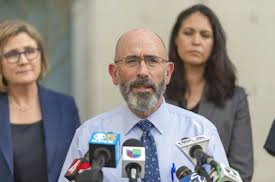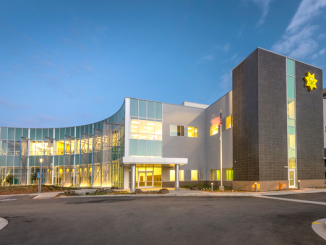
BY ELAINE GOODMAN
Daily Post Correspondent
Santa Clara County will slightly ease stay-at-home restrictions due to COVID-19, through a new public health order that will be issued by May 3, officials said Sunday (April 26) during a telephonic town hall meeting.
Public health officers are moving cautiously due to concerns about a possible future surge of COVID-19 cases if restrictions are eased, Santa Clara County Executive Dr. Jeff Smith said during the town hall meeting, which was hosted by Supervisor Joe Simitian. So far, Smith said, sheltering at home has slowed the spread of the respiratory illness, preventing hospitals from being swamped with patients.
“We’re basically stuck in this situation with only one way to treat the pandemic, and that is social distancing,” Smith said. “We have no vaccine yet, we have no specific medical treatment. So public health officers are going to do what’s called a staged return, meaning they will look at low-risk activities and begin to permit very low-risk activities and measure what effect that has on the so-called curve.”
Smith said he didn’t expect to see any dramatic changes to the county’s stay-at-home mandate in the new order, but rather some minor changes “to free up the society a little bit.” He didn’t provide any specifics on what activities might be allowed under the new order.
The order will replace one that the county issued on March 16 and that was updated on March 31. Smith said the new order would be issued before the current order expires on May 3, possibly coming by the middle of the week.
Santa Clara County worked with five other Bay area counties on issuing stay-at-home orders last month, and is doing so again with the upcoming order to ensure consistency throughout the region, Smith said.
Smith said public health officers are concerned about the toll the shelter-at-home order is taking on the economy and residents’ mental and physical health. But worries remain about a possible surge in COVID-19 cases.
“We’re very concerned about new spikes,” Smith said. “Every pandemic in the history of the world has had two or three spikes. And we are concerned that there will be one in either the late summer or early fall. So we want to make sure that we are prepared for that.”
In addition to Smith, other speakers during the town hall meeting were Paul Lorenz, chief executive officer of Santa Clara Valley Medical Center; and Greta Hansen, chief assistant county counsel.
The county’s public health officer, Dr. Sara Cody, did not participate.
Simitian asked Hansen what residents can do if they feel the county’s public health order is being applied to them in a way that’s unfair, inaccurate, or inconsistent, or if they think they’re a special case under the order.
Hansen suggested that residents read a section of the county’s website that answers frequently asked questions about COVID-19. In addition, the website allows users to submit a question to county staff.
Simitian said he’s often asked why the Board of Supervisors doesn’t direct the county public health officer to take some particular action in regard to the coronavirus. He said that only the state public health officer can overturn an action by the county health officer while the emergency is ongoing. Hansen agreed.
Residents also had a chance to ask questions during the town hall meeting. A woman from San Jose wanted to know when dentists would reopen for non-emergency dental care.
“If you have a cavity and it’s not addressed, of course, you know, your tooth health can become worse,” the resident noted.
Hansen said that all health care providers, including dentists, are considered essential under the public health order and are allowed to stay open. But many have decided to close, or only offer emergency treatment, in order to prevent spread of the coronavirus to dental staff or patients. Some have remained open, Hansen said, and more may decide to resume services such as teeth cleaning in the coming weeks.
In another question, a Palo Alto woman asked whether the county could use dogs to sniff-out people who are carrying the coronavirus. A charity in England called Medical Detection Dogs has trained dogs to detect diseases such as cancer, Parkinson’s and bacterial infection, and announced recently that it is working to see if the same can be done for coronavirus.
Smith with Santa Clara County said he’s looking forward to seeing the results of such efforts. But he cautioned that even if it works, it would take time to train the dogs and there might not be many trained animals available.
Sunday’s town hall meeting was the second one that Simitian has hosted on COVID-19. A replay of the meeting will be available on Simitian’s website within a few days, and another COVID-19 town hall meeting is scheduled for May 17.




My husband was diagnosed of Parkinsons disease 2 years ago, when he was 49. He had a stooped posture, tremors, right arm does not move and also a pulsating feeling in his body. He was placed on Senemet for 8 months and then Siferol was introduced and replaced the Senemet, during this time span he was also diagnosed with dementia. He started having hallucinations, lost touch with reality. Suspecting it was the medication I took him off the Siferol (with the doctor’s knowledge) and started him on PD natural herbal formula we ordered from AKANNI HERBAL CENTRE, his symptoms totally declined over a 3 weeks use of the AKANNI HERBAL Parkinsons disease natural herbal formula. He is now almost 51 and doing very well, the disease is totally reversed! (Visit www. akanniherbalcentre .com)